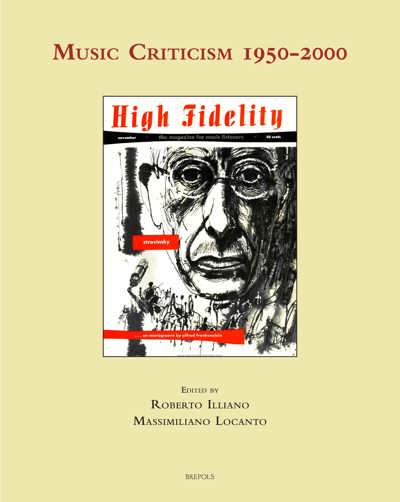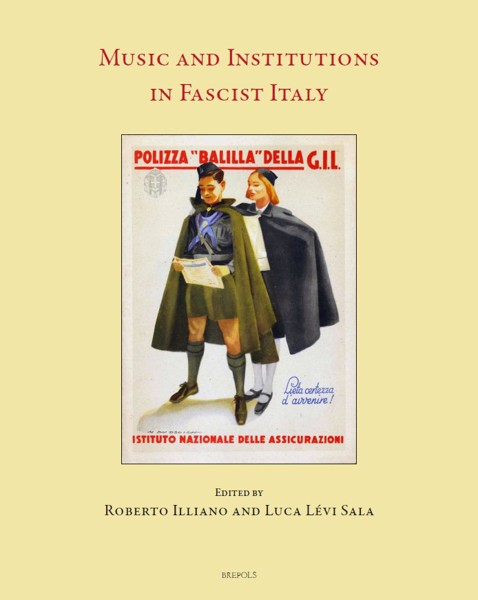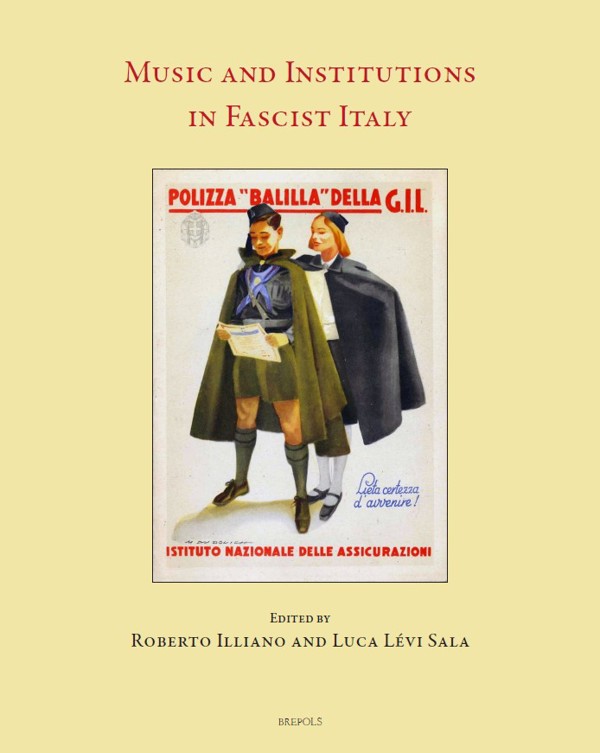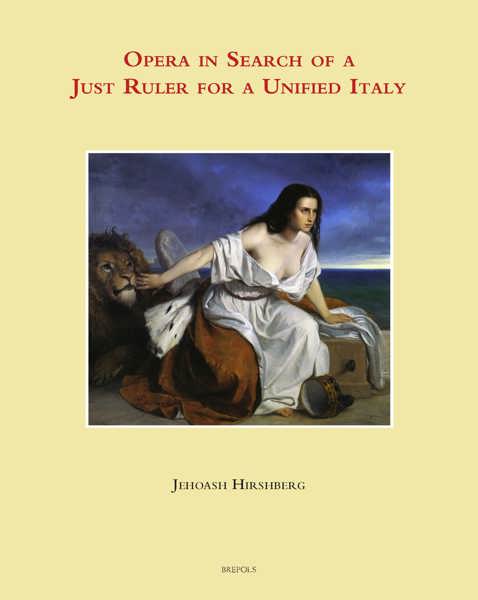
Music and Institutions in Fascist Italy
Roberto Illiano, Luca Lévi Sala (eds)
- Pages: xxx + 416 p.
- Size:210 x 280 mm
- Illustrations:30 b/w, 4 tables b/w., 10 musical examples
- Language(s):English, Italian
- Publication Year:2024
- € 120,00 EXCL. VAT RETAIL PRICE
- ISBN: 978-2-503-61184-6
- Hardback
- Available
This book explores the relationship between music, institutions and composers during the Fascist period
Roberto Illiano is General Secretary of the Centro Studi Opera omnia Luigi Boccherini and President of the Italian National Edition of Muzio Clementi’s Complete Works. He is General Editor of the series ‘Speculum Musicae’ and ‘Staging and Dramaturgy: Opera and the Performing Arts’ (Brepols Publishers), and has published a variety of writing (edited volumes, articles, editions, and dictionaries entries) on 19th- and 20th-century music, in particular on Luigi Dallapiccola and Italian music under the Italian fascism.
Luca Lévi Sala Ph.D. is Adjunct Assistant Professor at Manhattan College (NYC) and Visiting Scholar at New York University. He has published a range of articles and chapters, reviews and reports (also serving as a peer-reviewer) in various international books and refereed journals. His book "Music Criticism, Politics and Eugenics in the Italian Fascist State (1930-1940)" is committed for Palgrave Macmillan.
In the 1920s and 1930s, the entire process of renovation of the cultural institutions conducted by the Fascists, implemented through the Ministry of National Education, imposed a strong concentration of power on the Italian school administrations, especially the universities, and created new national institutions. At the same time, the Fascist Cultural Institute (IFC), which under the leadership of Giovanni Gentile aspired to be a charitable organisation for the promotion of the culture typical of pre-Fascist associations, was placed after 1937 directly under the National Fascist Party, which changed its name to the National Institute of Fascist Culture (INCF), with the aim of giving the party itself the task of educating the new leadership. The relationship between intellectuals and power under Fascism was aligned into a perspective of orientation that attributed the party with the role of educator of homo novus, summarised in a phrase from Mussolini himself: «Fascism is a great orchestra, where everyone plays a different instrument». A particular concern of the ruling class was to develop a production-fruition process involving all social classes, in order to offer them the feeling of being part of a solid, free and fair system. However, this conception was not explicit in the artistic expressions of the regime: the construction of a social apparatus proceeded underground through the channels of the productive and hierarchical apparatus of the institutions, rather than through the creation of a tangible aesthetic of the regime. In summary: culture had to be the expression of a common heritage belonging both to the people and to the intellectuals; it bore the task of providing a fascist conception of the world.
Luca Lévi Sala, Pre-Fascist Ideology, Politics and the Seizure of Culture
Music and Institutions
Davide Ceriani, Italian Instrumental Music as Fascist Propaganda in the United States during the Interwar Period: The View from the Ministero degli affari esteri and from the Press
Isabella Abbonizio, «Le armi dello spirito». Music in Mussolini's Imperialist Propaganda: Competitions and Awards in the Mid-1930s
Beatrice Birardi, Corporate State and Musical Organization: The Action of the Fascist Syndicate of Musicians in Apulia between Bureaucracy and Search for Consensus
Paola Cossu, Venetian Musical Institutions in the Transition from Fascism to the Republic
Dario De Cicco, «Educating and Refining the Pupils»: Music Education and Fascist Culture (1921-1943)
Music and Mass Media
Francesco Finocchiaro, Music in the Luce Films of the Fascist Ventennio
Antonio Ferrara, «Che non sia tolto il pane al musicista italiano». Propaganda e corporativismo del Sindacato Fascista dei Musicisti a contatto con cinema di regime
Valerio Morucci, Tuning in Radio Fascism: Censorship, Race, and Music in Fascist Propaganda
Propaganda and Reception
Erik Levi, The Ambiguous Reception of Alfredo Casella's Music in Nazi Germany
Franco Sciannameo, Stile littorio as Research between Music and Architecture: Goffredo Petrassi and Nino Rota
Giorgio Farabegoli – Piero Garofalo, Fascism’s Influence on Catholic Faith Sites: A Case Study of Aielli’s Church of Sant’Adolfo
Jewish Composers and Musicians
Annalisa Capristo, Primary Sources for the History of Fascist Persecution against Jewish Musicians, Composers, Singers, and Music Critics
Raffaele Deluca, Musica internata. Nuove acquisizioni biografiche sul compositore Isko Thaler nel carteggio con Joachim Stutschewsky
Jesse Rosenberg, The Teatro delle Novità and Mario Jacchia’s La Stella d’Oriente
Abstracts and Biographies
Index of Names




